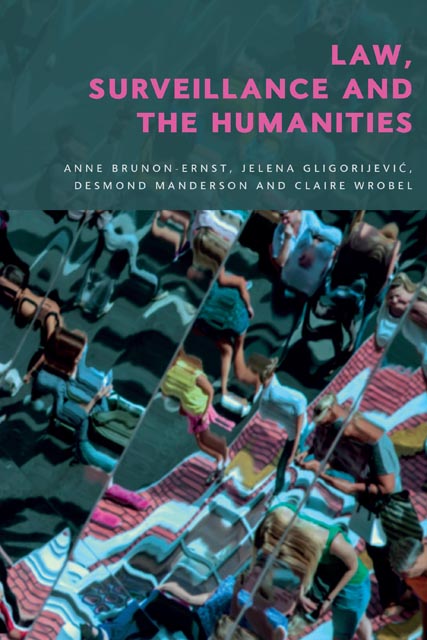2 - Surveillance and its Ambiguities
Published online by Cambridge University Press: 18 November 2023
Summary
I. Introduction
This contribution aims to question some of the contemporary forms of surveillance by focusing on the major changes we are witnessing today and the ambiguities they contain. The most obvious ambiguity today concerns the articulation between the surveillance society and the expository society. This articulation reflects a recent evolution, linked in particular to the explosion of the Internet and social networks and to the evolution of surveillance itself, which finds a decisive relay and a new sophistication in the desire for selfexposure and virtual transparency of individuals. At another level, this desire may itself be linked to a paradoxical need for protection: the exposure of oneself, of one's private life as well as of one's personal data, may appear to be the expression of unlimited freedom; but it also increases our desire for security. These debates have found in the COVID-19 health crisis a particular topicality that concentrates and intensifies their stakes and ambiguities. In the following considerations, we will take up the thread of these contemporary debates and show how contemporary surveillance apparatuses are born out of these contradictory desires and the ambiguous divisions they establish between private and public, freedom and security, intimate and exposed life.
II. From Disciplinary Panopticon to Biopolitical Governmentality
The very idea of surveillance is full of contradictory meanings. This ambivalence resides, on the one hand, in our reticence in the face of the implementation of control procedures which have the effect of limiting our freedom in fact and sometimes in law, and, on the other hand, in a deep desire for security, which itself calls for the control of some acts, some behaviours, and even some populations said to be ‘at risk’ (whether ordinary offenders, radicalised people or even, in recent times, people infected with COVID-19).
This ambivalence may be seen as the correlate of an evolution which concerns both the modes of exercising surveillance and its supposed purposes. Recall that from the mid-1970s, Foucault drew the contours of a disciplinary society and of a biopolitical governmentality based on ‘apparatuses of security’ (dispositifs de securite). But in the twenty-first century, surveillance operations are changing and do not play the same role in either case.
The very notion of surveillance, as Foucault developed it in Discipline and Punish, is rooted in an ‘anatomo-politics of the human body’.
- Type
- Chapter
- Information
- Law, Surveillance and the Humanities , pp. 29 - 42Publisher: Edinburgh University PressPrint publication year: 2023



